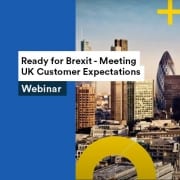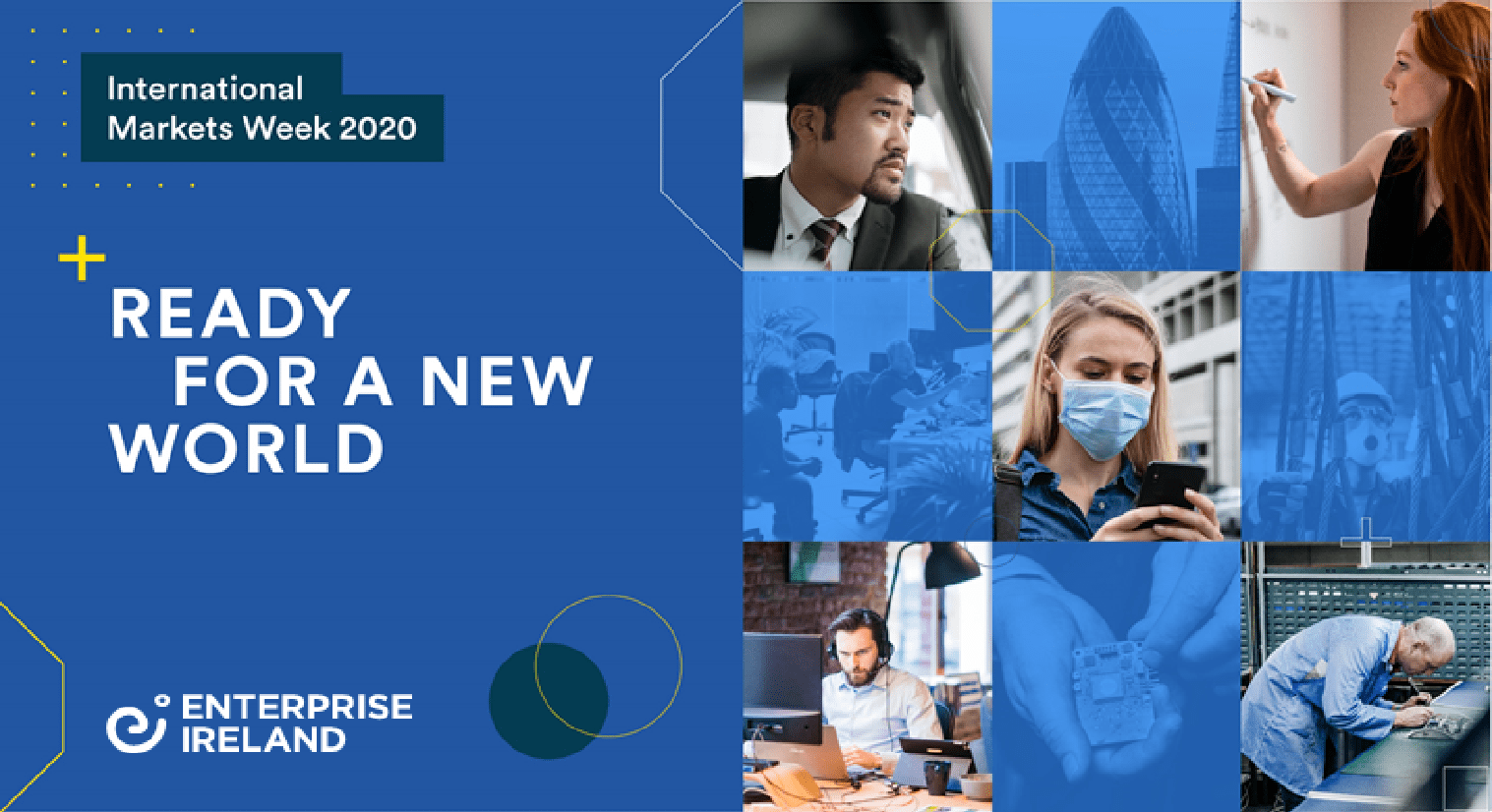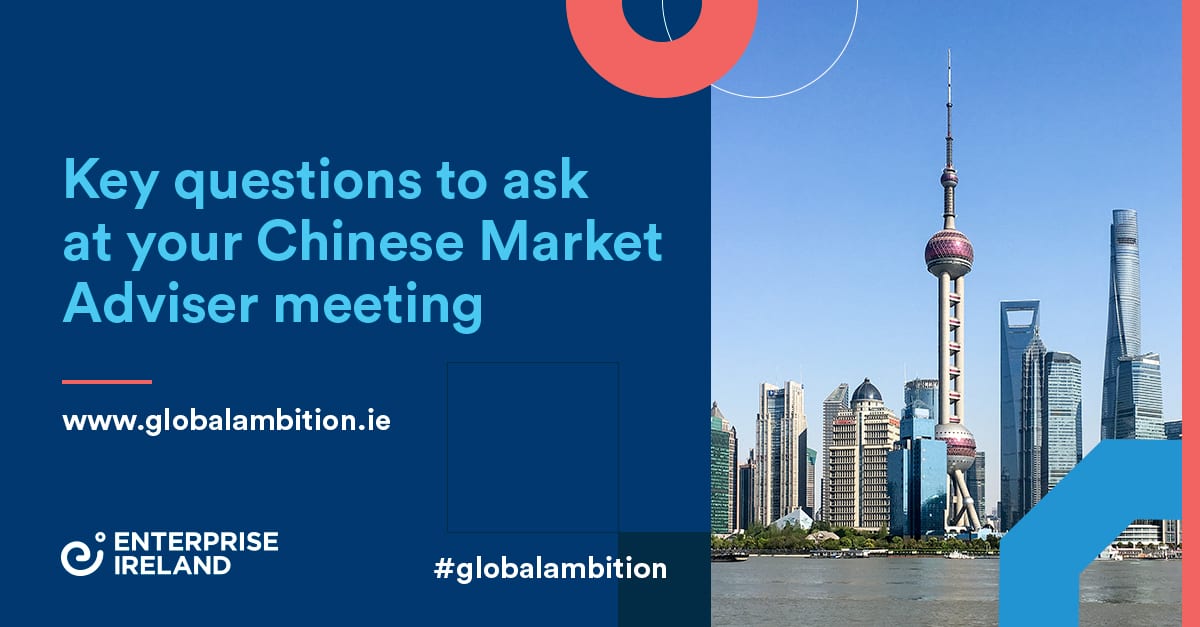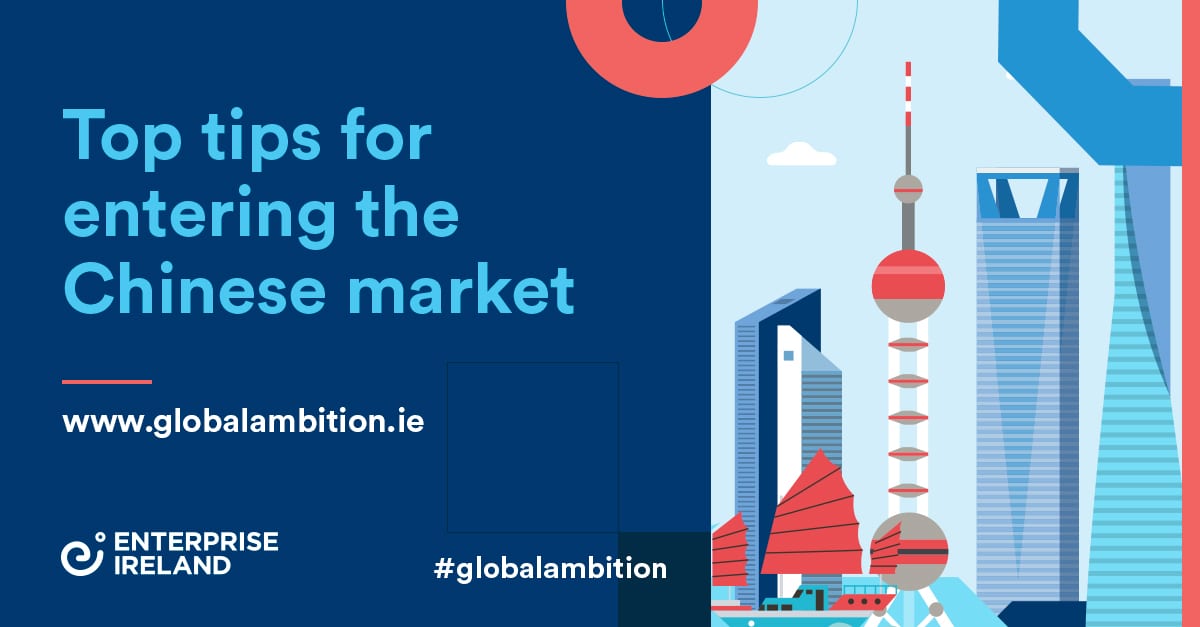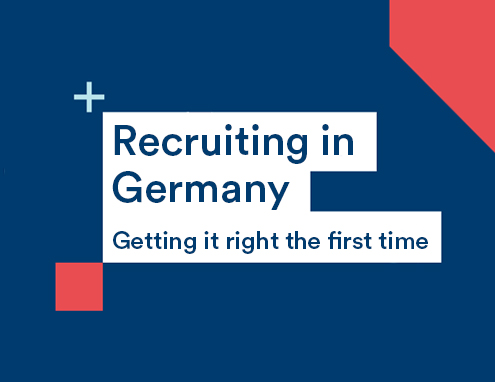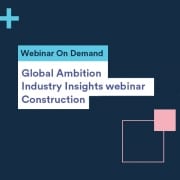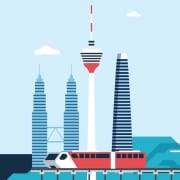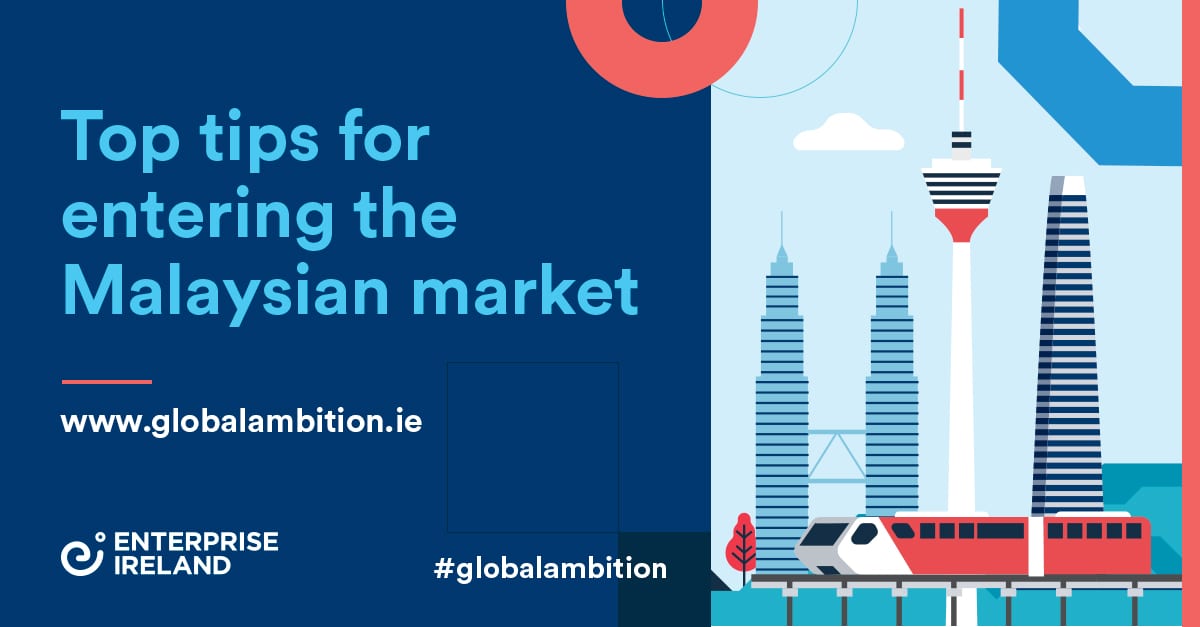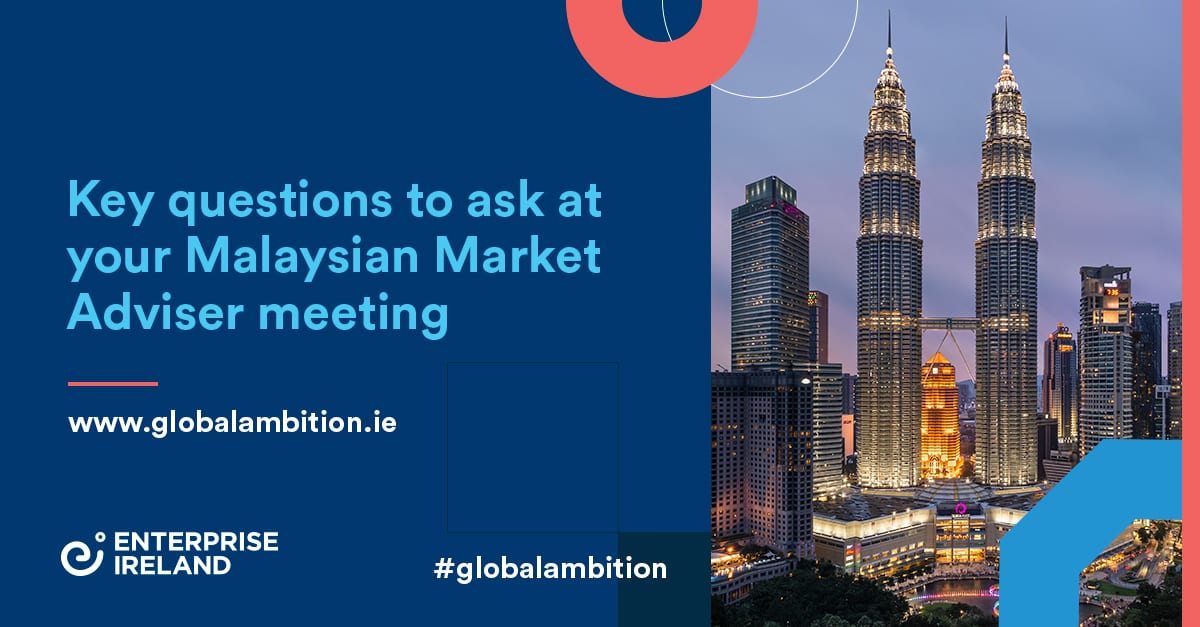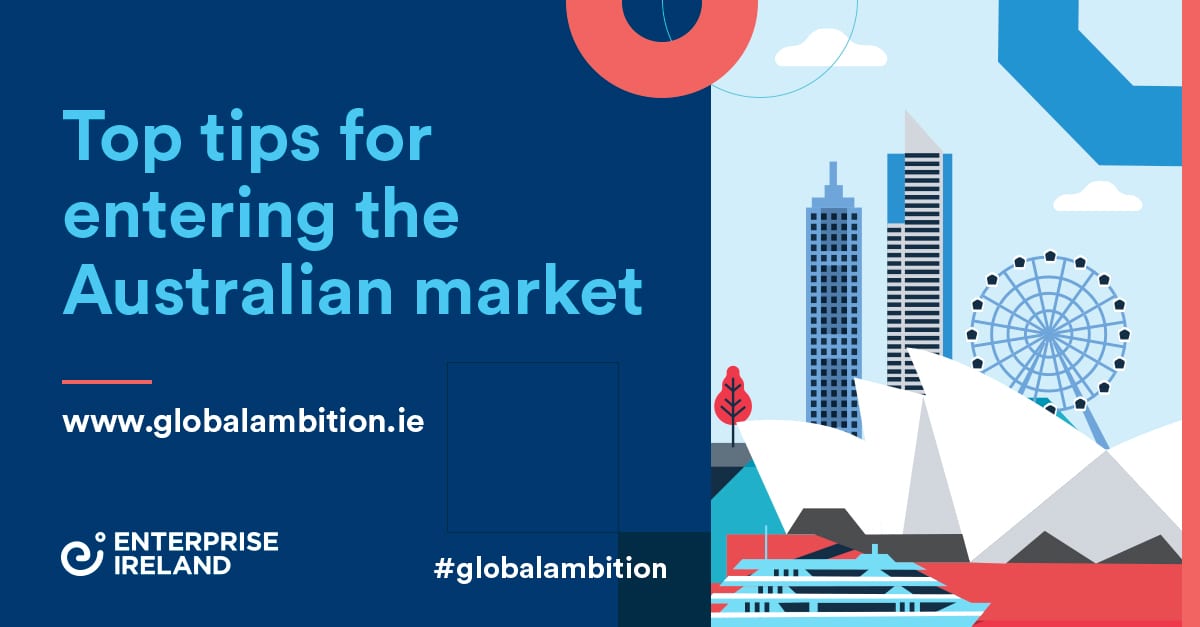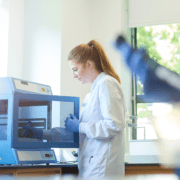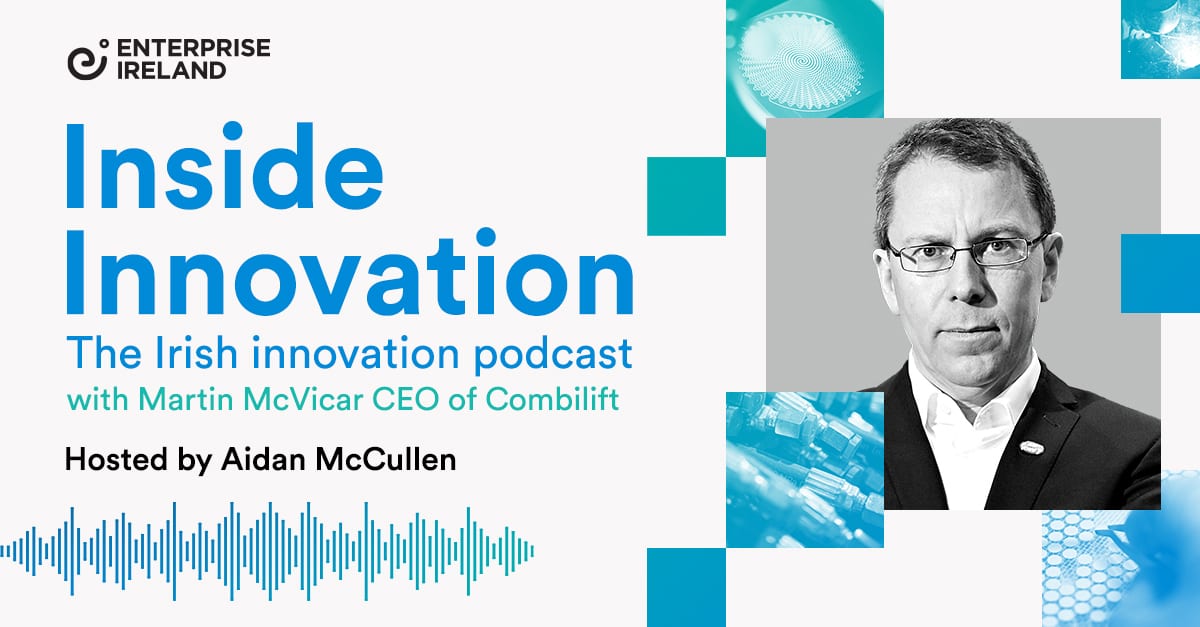Innovation and ambition take centre stage at International Markets Week 2020
In a major event to mark International Markets Week four Irish companies shared the stories behind their exporting achievements
The role played by innovation and ambition in helping companies to internationalise was the theme of “Ready for a New World”, a major virtual conference which marked the launch of Enterprise Ireland’s International Markets Week 2020.
More than 700 companies logged on for the panel discussion with the founders of some of Ireland’s most successful international exporters.
They provided insights into not just the scale of their ambition but of the ways in which they innovated, and in some cases pivoted, in order to achieve it.
Tim Houston, CEO of Clonakilty based Global Shares, expressed his ambition to see the fintech become a ‘unicorn’, or billion dollar company.
It started out in 2005 as a provider of services in the area of employee share options. By 2015 it had perfected and launched a platform to simplify the share ownership process for both employees and employers, all over the world. “Since then we have never looked back,” Houston told delegates.
Today it is one of a handful of global providers in its market and competes against major legacy providers such as Merrill Lynch, UBS and Morgan Stanley.
“We don’t have the big brand but we do have the speed to market and a great team.” – Tim Houston.
“We don’t have the legacy platforms that some of these big banks suffer from either, so that’s how we compete. And where we can’t compete with them we partner with them,” he explained.
It’s a strategy that has put the fintech on track to grow employee numbers from 370 currently to 1000 in the coming years.
Nicola Mitchell, CEO of Life Scientific, an agrichemical company, said her company was set up in 1995 to provide contract research services to a number of sectors but has grown by focusing on designing innovative versions of off-patent crop protection products.
In the process it has injected competition into an oligarchic market, to the benefit of farmers around the world.
Making the transition involved giving up the valuable contract work it carried out for multinational agrichemical clients in order to realise its strategy. It’s always a tough decision for any business but it has paid dividends for Life Scientific.
“We wanted to scale, we wanted to be global,” – Nicola Mitchell.
It did just that. Life Scientific Germany launched two years ago and went to Euro 10m sales very quickly while, in 2014 she sold half the business to InVivo, a Euro 6 bn French co-op with 5,000 employees, in exchange for market access in France. “Without this we wouldn’t have jumped from Euro2m to 60m. We’ve a very healthy business in France and a very healthy partnership,” she said.
“The single most important thing we can get right as a virtual type company which invests in R&D and sales & marketing alone, is to be able to find the best partners, whom we can work with the best, and go fast. (France) has been a great poster child for our global expansion.”
Kilkenny’s Modubuild transformed what was a domestically focused construction firm by winning its first contract overseas, to build a high tech data centre in the Netherlands, in 2015.
Today 70% of its turnover comes from exports. It provides both on-site modular construction and off-site construction at its facility in Castlecomer where it can design, build and ship at speed.
The company employs 300 people and has been helped in its overseas expansion by Enterprise Ireland’s teams on the ground, CEO Kevin Brennan told delegates.
“When we entered the Netherlands market in 2015 our turnover was Euro 1.5m. We have grown 60% year on year since we started working internationally and this year we expect it to be around Euro 34m, and Euro 50m next year,” he said.
Aerosol drug delivery company Aerogen employs 300 people, including 200 in Galway and 100 in commercial offices around the world, founder and CEO John Power told the conference.
Its products are included in all major manufacturers’ ventilators. “We’re the ‘Intel inside’”, he said. The company ships to 70 countries and, as a result of Covid, in the second two weeks of March alone received the equivalent of half a year’s orders.
But Power is intent on moving the business further up the value chain from being a drug delivery systems provider to becoming a speciality pharmaceutical provider too, he told delegates.
Innovation helped many of the companies showcased to power through Covid. Global Shares had already migrated its staff to remote working in 2019. This year has been the company’s “best new business year ever,” he explained.
“Our strategic plan is to focus on the four largest economies in the world, China, Japan, North America and Europe and we try and stick with just those.
“That said, during lockdown we won the largest company in the world, in Saudi Arabia, which we ostensibly won over the phone,” he said.
Covid has seen data usage grow exponentially, fuelling demand for data centres too. Once Modubuild won its first contract overseas in 2015 it continued to grow, both as a result of follow on business, as his clients grew, and by winning new clients.
“Once you break into it, it’s a good industry to be in. We gained a reputation as a company that could deliver internationally, so we are now working for multiple clients in multiple countries throughout northern Europe and we expect to move more towards southern Europe too as the data centre industry moves more towards African markets,” said Brennan.
As a design engineer by training, John Power’s primary innovation in Aerogen was to spot the opportunity to create an entirely new product category, aerosolised drug delivery for ventilated patients. As a result of this, the company has no direct competitors.
But whatever sector you are in, being the best is the only secret of success, he suggested.
“Multinationals utilise your product or service because you give them a better product or service than anybody else, no other reason,” – John Power.
Innovation, research and development is the key to delivering that, he said.
“We have a big team of research scientists in R&D, electronics, software and mechanical engineers. We keep developing new products, and new iterations of existing products, and diversifying across the hospital.”
In fact, the major innovation Aerogen has made is into funding its own drug trials, including one he predicts will have the biggest impact on neonatal care seen in 50 years.
“It’s about R&D and keeping moving up the chain. You want to be your own boss, you don’t want to be reliant necessarily on others. The way you do that is you innovate and come up with the best products in the world,” he said.
It’s a sentiment Kevin Brennan endorsed. Construction is an inefficient industry, which is why Modubuild invested heavily in its off-site manufacturing facility, bringing high tech construction back to a factory environment, with a team dedicated to innovating new ways to construct facilities.
That is paying dividends for its clients. “We just delivered a vaccine laboratory for a multinational client, designing and building it entirely in our factory and then shipping it out and constructing it on site in 10 days. That allows our client to get to market a year quicker than it would traditionally,” he said.
“It’s very important for us to be continually innovating, looking for new and quicker ways of delivering projects for our clients. – Kevin Brennan”
Enterprise Ireland chief executive Julie Sinnamon, who hosted the panel, said the common denomination in all of the companies featured was innovation, “not just in product or service but also in business model.”
But their success was about more than innovation alone, she added.
“What is also coming across really strongly is the importance of ambition. One of the big challenges we have is not having sufficient Irish companies of scale. Each of these panel members has a very clear view. They want to be in control of their destiny and they really have a very strong strategy to build a company of scale in Ireland. It’s great to see that being done in Dublin and the regions.”
Click here to watch the launch of Enterprise Ireland’s International Markets Week 2020
Spearline: Taking practical steps to promote gender balance in leadership roles
A diverse staff to meet the diverse needs of their target audience – to Spearline, gender balance in every part of the business, particularly in senior roles, naturally makes sense. But for the Cork-headquartered company working in the field of telecommunication technology, getting good gender balance is much easier said than done.
“In the field we’re in, it’s hard to get a gender balance, particularly with regards to software development,” explains Spearline CEO Kevin Buckley. “But it’s important – we believe that the more diversity a company has, the better it performs – and countless studies have backed this up.
“I think most companies within our sector are aware of the importance of gender balance; we would hear this constantly referenced when on training courses or meetings. But achieving it can be tricky.”
People-focused business
Established in 2003, Spearline has developed a cloud-based platform that proactively monitors critical business telecommunication services, replicating the experience of a client’s customers and callers and allowing them to diagnose, escalate and resolve issues before they become noticeable problems. With clients including Zoom, Mastercard and Global Call Forwarding, Spearline is a problem solver with a diverse customer base – so having a diverse workforce to match is a must.
“I believe that the more diverse your thinking as a company, the better it will be,” says Kevin. “Men and women have slightly different ways of thinking, and I mean that in a positive way. Bringing these together can only improve our thinking as a business. And our users and clients would be both men and women, so I don’t understand why a company wouldn’t try and go for a 50-50 balance. Basically you’re trying to get a diversity of thought within your organisation, whether that’s gender, ethnic or more. A nice way of describing it is that we’re citizens of the world – we’re looking for a broad understanding of the world, and that is down to diversity.”
Practical steps
With teams based in Skibbereen, Waterford, Bucharest in Romania and Ahmedabad in India, Spearline is working hard to achieve a good gender balance in every part of its business. “We’re currently at 31.6% but by 2030, we’ll be setting a goal for ourselves to meet 40%,” says Kevin. “The software development side, which is about a third of our team, is very male oriented, but the other parts of the company tend to be less so – we would be pushing 40% in most of the other areas.
“We constantly look at the issue when hiring, especially in the last few years as we have matured as a company.” says Kevin
“Entry level positions for software development are dominated by men, but when hiring, we strive to identify people with strong leadership skills and support them as they progress their career with us. For instance, we interviewed one prospective candidate who was self-taught and had huge ambition and potential. She is now head of the QA team. We believe that this approach helps out gender balance policy in every area of our business – and in terms of leadership roles both our Chief Commercial Officer and our Chief People and Culture Officer (CPCO) are women.”
To attract more women into leadership roles, the company has put in a number of benefits to suit both women and men who are juggling work and family. “Two years ago, we brought in maternity, paternity and adoptive leave, and we’ve just introduced a hybrid model of working, which is two days in the office and three days at home. We also have flexible working hours, to accommodate school runs, and we offer career development opportunities through subsidised study. Our aim is to keep pushing the whole time, to create a workplace that is inclusive and diverse.”
Lorraine McCarthy, CPCO, adds, “I think it’s definitely working. We have a lot more women coming through in India, and that’s a growing team, we have 45 there now. Our country lead in India is female; we made her head when she came back from maternity leave, and to make someone head just after returning from maternity leave would be virtually unheard of in India. But she was the right person for the job, it’s as simple as that.”
Visibility of women in leadership roles also supports another important strategy in promoting gender balance which is role modelling. “Yes, we have 40% women in our Indian team now, which absolutely proves the point,” says Kevin.
Leading the way
Spearline is one of the progressive businesses that have seen the business benefits of gender balance in management teams, and have been working hard to attract more women into every aspect of their business. This strategy is aligned to The Level Project, a campaign by Enterprise Ireland to increase the number of women in senior management and leadership positions in Irish companies. This was a key aim highlighted in the 2020 Action Plan for Women in Business.
“I do see a difference in the world in terms of promoting gender balance; society has moved on and there are a lot of people doing a lot of good things in making that change.” says Kevin
Enterprise Ireland has great weight and clout, and by getting behind gender balance, it’s really putting a spotlight on the issue – we’re constantly bombarded by information, but when it comes from a heavyweight like Enterprise Ireland, people do listen.”
Start improving gender balance in your company with The Level Project Toolkit.
Key questions to ask at your Chinese Market Advisor meeting
China is one of the most diverse and exciting countries to do business in the world today and the opportunities for Irish enterprises in the region are ever on the increase.
To help you prepare for your Market Advisor meeting, take a look at our suggestions of questions below.
- Is there a market for my product in China?
- If I can sell my products in Europe, can I automatically sell them in China?
- What level of competition will I be faced with in China?
- What cities should I be targeting?
- Outline the possible legal structures in China?
- Should I visit China to meet potential partners and clients?
- What distribution channels are utilised in China?
- How can I protect my intellectual property in China?
- how much should I expect to invest upfront?
- What taxes, charges or hidden costs should I be aware of?
- How do I perform preliminary due diligence in China?
- How do I find the legal/technical requirements for my product?
Our Market Advisors are always available to support you and provide business expertise and on-the-ground knowledge.
For more, download our Going Global Guide
Enterprise Ireland’s top tips for entering the Italian market can be viewed by clicking the graphic below.
Recruiting in Germany
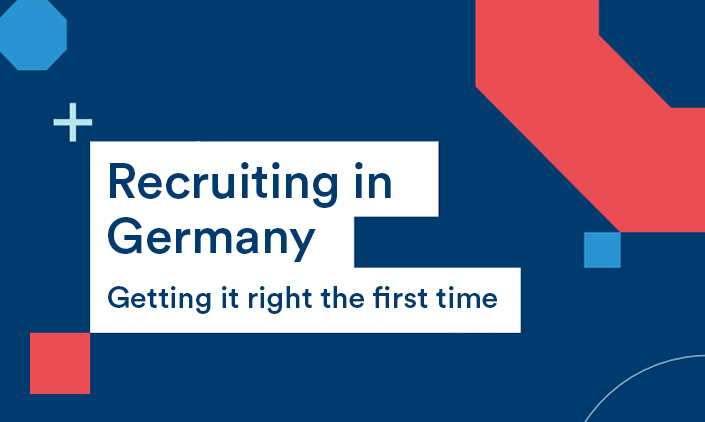
Finding the right person to represent your company internationally is one of the most important decisions you will make. Your company is judged not only by the products and services you offer but by the people who are offering them. Finding the right people to do this at an excellent level is a constant challenge at home and overseas.
Enterprise Ireland has developed this recruitment guide to provide Irish businesses with expert insights on executive search and selection from one the leading executive search companies in Germany and internationally, Signium.
Our team of Düsseldorf-based market advisors are available to help you grow your businesses within Germany, Austria and Switzerland and to advise on the vital process of international recruitment.
Download our guide to recruiting in Germany and find the right people to grow your business overseas.
French €100 billion recovery package puts business first
Recovery package which invests in Green economy, public transport, sustainable builds and digitisation could be of interest to Irish firms.
The impressive two-year stimulus plan announced in Paris last week puts business high on the priorities list. With the lion’s share going towards a tax cut for businesses, the goal is to spur economic growth and get back to 2019 levels by 2022.
With the global economy in the midst of the worst economic downturn in decades, governments are under pressure to outline individual recovery plans. France — feeling the sting of a 13% contraction — isn’t taking any chances, announcing one of the largest cash injections amongst bigger European countries.
The government’s spending strategy is heavily focused on boosting business to the tune of €34bn. Jobs, health and social programmes which aim to create at least 160,000 new jobs next year will see €36bn of the pot. Finally, €30bn will go towards green transition initiatives which will go a long way to help France meet climate goals without relying on carbon taxes.
The key measures outlined in the recovery plan are:
- €20bn in production tax cuts for businesses
- €11bn investment to improve transport networks, particularity railways
- €7.5bn towards extending the furlough scheme, though limited to the worst-hit sectors and part-time subsidies
As France24’s Senior Business Editor Stephen Carroll notes, the plan has “a little something for everyone”.
The general sentiment among France’s business community is that it will open opportunities, triggering new and innovative projects.
Banking on consumer confidence
Central to the plan is boosting consumer confidence. France argues that incomes have largely been maintained and that households have continued saving during the two-month lockdown period. Encouraging consumers to spend their money, the government believes, will stem primarily from people having job security. They say the focus on business investment will provide that security by spurring and maintaining economic growth.
Green goals
The recovery investment presents the opportunity to make some serious headway on climate goals. Of the €30bn going towards the green transition, €2bn will be injected into the hydrogen energy industry — accelerating a move away from fossil fuels. Almost €7bn will be invested in making public and private buildings more energy-efficient, creating jobs in manufacturing and construction at the same time.
A 40/60 split
The money will come from two sources: 40% from the EU’s Recovery Fund and 60% in affordable loans from the European Central Bank. The government plans to repay loans by 2025 and insist they won’t implement tax increases to do so. The €100bn investment aims to create economic growth which in turn will reduce the debt burden, making repaying easier.
Opportunities for Irish companies
The emphasis on the green economy and digitalisation will undoubtedly trigger major investment projects. Enterprise Ireland Market Advisor for France, Jean-Charles Moczarski, says that Irish client companies with a current foothold in France are well-positioned to take advantage of such opportunities and that the potential is ripe for those yet to enter. “I think it will bring market opportunities within France; it certainly makes it even more worthwhile for client companies to put France on the list of priority export destinations.”
Global Ambition – Industry Insights: Construction webinar
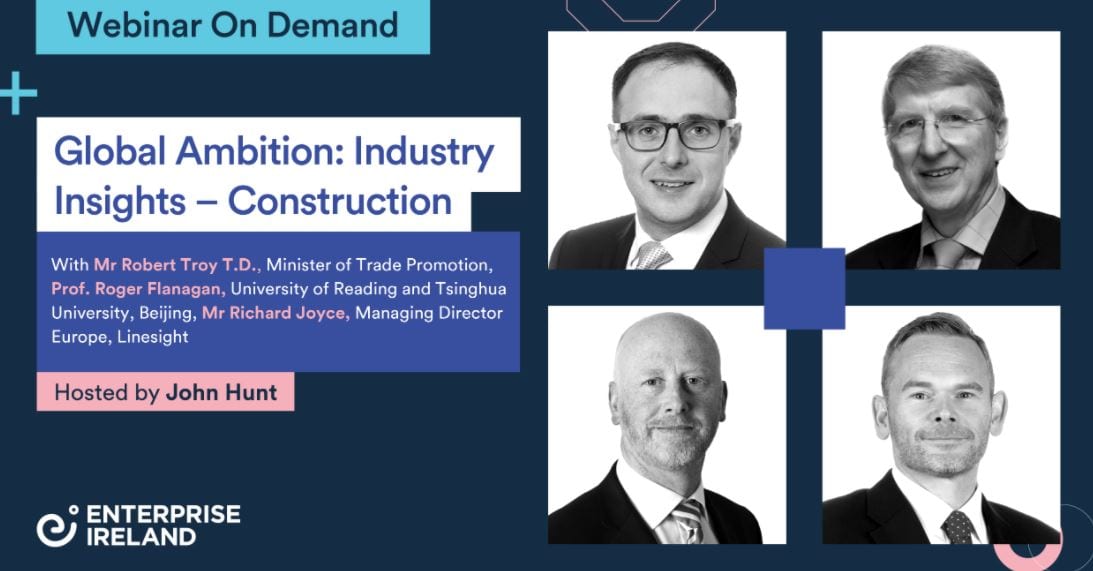
Enterprise Ireland hosted a series of Global Ambition – Industry Insights sector focused webinars to deliver market intelligence on the evolving international export opportunities across global markets.
How the Irish construction sector responds to the rapid change and set of deep-seated implications for international markets will be crucial as the sector now looks to reset and recover, in the wake of Covid-19.
This webinar was hosted by John Hunt, Senior Market Advisor for Construction at Enterprise Ireland, with insights from:
-
Mr Robert Troy T.D. – Minister of State at Dept. of Enterprise, Trade and Employment
-
Professor Roger Flanagan – Professor of Construction Management, University of Reading
-
Mr Richard Joyce, Managing Director Europe, Linesight
Watch the webinar here.
It’s never too soon – and a business never too small – to plan for export success
Mark Christal, Manager Regions and Entrepreneurship at Enterprise Ireland outlines why developing export activity is of critical importance to Ireland.
That includes export activity for businesses of all sizes, including small and medium ones as well as micro businesses which employ fewer than 10 people. It includes businesses already in operation and start-ups too because, put simply, Ireland needs to export more.
An OECD report in 2019 found that just 6.3% of Irish businesses exported and suggested that it needs to be closer to 10% if Ireland is to have the resilience we require in our enterprise base. That was before Covid-19 which has greatly increased our exposure to risk.
Export Compass webinar series
Being a small business is no impediment to export success but preparation is key. Because developing exports is an important strategic objective of Enterprise Ireland, it has partnered with the Local Enterprise Office network to launch a new webinar series called Export Compass.
This online series is completely free and is open to all companies. As well as expert advice it features small business owners willing to share the benefit of their experience in terms of tips for success and pitfalls to avoid.
The webinars are tailored to suit micro and SME businesses who are either just starting out or who wish to grow an existing business through export sales.
There are five webinars in the series, with each covering practical advice on specific issues including assessing your reasons for exporting – or not, choosing the right market and identifying customers within it.
Understanding business culture in your priority markets is vital too and the series includes representatives from some of Enterprise Ireland’s 40 overseas offices.
While the pandemic has created massive challenges, it has also accelerated the adoption of digital business practices. It is now the norm to seek and win new business overseas entirely online, a fact which presents Irish businesses with enormous opportunities.
The Export Compass webinar series outlines tools and techniques to help win export customers in a digital world. It also provides information about the funding and finance options available as you prepare and execute your export plan.
Research is vital. Developing exports has never been less about jumping on a plane, but about developing a strategy and putting the necessary structures in place first, including management capacity.
Businesses are already mindful of how, as a result of Brexit, there are now additional costs involved in trading with the UK, the Irish exporter’s traditional first port of call.
Some 31% of export sales by Enterprise Ireland clients still go to the UK and it will remain an important trading partner, but the webinar series also looks at the opportunities that exist across the Eurozone. It is a market to which we still have unfettered access and which, at a population of almost 450m, is still huge.
Over the past 12 months we have all seen a dramatic digital shift in the way consumers and businesses buy. Despite the challenges, the pace at which the global digital economy is opening up is generating enormous opportunities.
Helping businesses to realise their export potential is the cornerstone of both Enterprise Ireland’s and the wider government’s strategy. Last month’s report of the SME Taskforce reiterated this, highlighting the need to support all potential exporters, including micro businesses.
That is because our resilience – and our growth – will come from an ability to achieve export success, both as companies and as a country. Global exports hold the key to growing our economy and our employment levels.
We need to encourage as many companies as possible on the road to export success. The Export Compass webinars is a good place to start.
The 5-part series will look at:
- What is the basis of your export plan? Where in the world you might export?
- Who is your ideal customer? Culture and doing business in other countries
- How to prepare for export. Sales and marketing to win export customers in a digital world
- How to finance your export plan. Finance management through funding and pricing
- Bringing it all together. Q&A session
A version of this article was previously published in the Sunday Independent
Enterprise Ireland’s top tips for entering the Malaysian market
As Brexit plans progress, Irish businesses are exploring export options in sectors across the Eurozone markets, the USA and Canada and the APAC region.
Enterprise Ireland is playing a key role in supporting ambitious companies seeking opportunities in Malaysia’s IoT, telecoms and fintech sectors.
If you are considering doing business in Malaysia, please be sure to explore our tips to enter the market below and also be sure to reach out to our dedicated team.
- When scheduling meetings in Malaysia it is best to do so at least four weeks in advance. Malaysian counterparts will want to know who they will be meeting, and you should provide such details as the titles, positions and responsibilities of all attendees in advance.
- Due to its predominantly Muslim population, Friday is reserved for prayer and it is advised not to schedule meetings on this day.
- Schedules are usually loose and flexible and meetings may start late. However, Malaysians generally expect foreign visitors to be punctual.
- Developing trusting, personal relationships is fundamental to winning long-term business in Malaysia. For this reason, Irish companies must consider setting up a local presence at an early stage or engaging a local partner to manage relationships.
- Malay-owned companies have historically been given preference in Malaysia by the Government for state contracts. Irish companies may need to consider joint venture structures in some sectors for this reason.
- If you are planning to do business in Malaysia, it is essential to consult a lawyer. Government restrictions can hamper foreign involvement in several areas, including Government procurement contracts, financial, business and professional services and telecommunications. In most cases, it is imperative to have a local partner, usually a Bumiputera, (a local person) who has the ability to provide locally-based technical support.
- Kuala Lumpur has the most developed financial sector in the Southeast Asia region, after Singapore. It is known as one of the world’s capitals for Islamic finance. The main opportunity for Irish companies is to deliver efficiencies and add capability to institutions in the form of payments, anti-money laundering, regulatory tech, distributed ledgers and analytics. There is also an opportunity to deliver direct financial services, such as foreign exchange and micro-lending.
- Malaysia continues to evolve as one of the hubs for medical device manufacturing in the region with over 200 manufacturing companies based in the country. Design and construction projects for high-tech manufacturing facilities for medical instruments and devices is one of the key opportunities for Enterprise Ireland client companies in Malaysia.
- Malaysia’s telecommunications sector is competitive with the three largest mobile networks operators – Digi, Celcom Axiata and Maxis –holding over 75% of the market. Operators are looking for vendor solutions to strengthen their digital Value Added Services (VAS) suite of services and mobile apps in order to accelerate their transformation as fully-fledged ‘Digital Service’ companies.
- Over 130 Irish firms are already active in this market thanks to EI assistance, contact the local MA here
For more be sure to check out our Going Global Guide
If you would like to know what to prepare ahead of your first MA call, click the graphic below
Enterprise Ireland’s top tips for entering the Australian market
Australia has one of the strongest and most open economies in the world
If you are considering doing business in Australia, please explore our top tips to enter the market below and also be sure to reach out to our team in Australia.
- Australia has one of the strongest, most competitive and open economies in the world. Historically seen as suffering from its remoteness from Europe, today Australia benefits from its strategic location on the doorstep of Asia.
- As Australia’s economy has developed, it has put a greater emphasis on professional services and technology. Telecoms, financial services, education and scientific and technical services all constitute an increasing share of the Australian economy.
- The Australian Government is developing a national Technology Investment Roadmap that will drive investment in low emissions technologies to strengthen the economy and support jobs and businesses. This is a key priority on the road to recovery from COVID-19 and provides opportunities for innovative offerings in the energy sector.
- Australia is the third most popular destination in the world for foreign students enrolled in higher education and has the third-highest number of universities in the world’s top 100.
- Significant infrastructural investments in telecommunications and transport infrastructure are underway by state and local government.
- One of the biggest challenges for Irish companies is how to service customers 15,000 km away. In most cases, a local presence should be established, or partner secured, as directly servicing the market from Ireland is difficult in most industries. Companies should be prepared to invest time to come to the market to meet with possible partners before selecting a company which is the best fit.
- Irish businesses should have little difficulty traversing cultural barriers in Australia.
- The Australian egalitarian approach to life is reflected in its business culture and can be seen in both corporate structures and communication style. Australians can be quite direct and matter of fact in their tone and prefer if this approach is reciprocated
- Hiring someone with industry knowledge can be an excellent way to build a presence. Companies should take a hands-on approach to onboarding and supporting their hire as the time difference can leave them isolated from the wider organisation.
- Avoid visits to market from mid-December to the end of January as these are prime holiday times. Be aware the Australian financial year runs from 1st July to 30th June and therefore many key decisions are made between mid-May and mid-July.
- Australia’s highly-skilled workforce and business-friendly policies have led to a growing tech ecosystem and is ranked 1st globally for technological readiness.
- The Asia-Pacific region is the fastest-growing region in the world for financial technology with Sydney and Melbourne acting as financial hubs for the wider Asian-Pacific region. This makes Australia and attractive market for fintech businesses.
For more be sure to check out our Going Global Guide
Knowledge Transfer Ireland: Turning cutting-edge research into profitable business
It is widely acknowledged that investing in research and development (R&D) is essential for every company in order to stay relevant and competitive in today’s fast-moving world. Us Irish thrive on exciting and innovative ideas, and our colleges and universities are producing some of the most exciting cutting-edge R&D. But while we have the ideas and the talent to develop them, R&D can be costly, in terms of both time and money, and many SMEs struggle in funding adequate R&D.
The Irish Government and Enterprise Ireland has long recognised that the key to ensuring that great ideas can evolve into new products and solutions is developing and strengthening links between public research opportunities and business. To help, in 2013, the Department of Enterprise, Trade and Employment established Knowledge Transfer Ireland (KTI) to help get technology, ideas and expertise from State-funded research into the hands of every business.
“We believe that our potential as a country can be unlimited when the forces of third level research and businesses are combined with a common goal and purpose to deliver more advanced solutions for industry and society,” explains Elizabeth Carvill, Senior Executive at KTI.
Essentially, KTI acts as a signpost for all businesses, from start-ups to multinationals, allowing them access to Ireland’s research system quickly, easily and effectively and allowing them to engage in the process of knowledge transfer.
“Knowledge transfer is an effective way to help companies build on key areas of innovation capability,” says Elizabeth. “Knowledge transfer is enabled through collaborative or contract research engagements between business and the third level. Outputs from these engagements, such as new technologies or intellectual property, can be used to develop new products, processes and services. This research also underpins the creation of spin-out companies.”
KTI is based in Enterprise Ireland’s headquarters in Dublin and acts as a national office making the knowledge transfer system more simple for business to access. “Part of this is to manage a funding programme on behalf of Enterprise Ireland to support Ireland’s network of Technology Transfer Offices (TTOs), also known at Innovation Offices,” says Elizabeth. “These skilled teams based in universities and Institutes of Technology oversee the process of knowledge transfer and managing relationships with companies seeking to benefit from the access to skills, technology and intellectual property from within Ireland’s third level and other research organisations.’
Quantifiable success
The success of KTI can be seen in the Annual Knowledge Transfer Survey, which is produced every year by KTI. The latest report covered 2020, a challenging year for many thanks to the start of the Covid-19 pandemic, yet the statistics are impressive. “The 2020 Survey revealed that 3,681 new R&D and consultancy agreements were made between companies and non-commercial entities and higher education institutions during the year, an increase of 39% on the previous year,” says Elizabeth. “Three-quarters of these agreements involved Irish SMEs.
“The survey also revealed that 30 spin-out companies were formed in 2020, and that there are now 128 spin-out companies still active three-plus years after incorporation. The same year saw a record number of spin-out company acquisitions (nine) with a combined value of €7.9 million, proving how attractive Irish spin-outs are to external investment.”
Elizabeth explains that many of these spin-out companies go on to become High-Potential Start-Ups, supported by Enterprise Ireland. “Some recent examples include TU Dublin spin-out Ocumetra, UCD spin-out Sirius XT, NUI Galway spin-out Neurent Medical, and Dundalk IT spin-out Nova Leah. In fact, Ocumetra, which developed a pioneering eye monitoring tool that can identify abnormal (myopic) eye growth, became an HPSU just six months after its foundation.”
Exciting success stories
And when research bodies work with commercial enterprises, some really exciting products and solutions are produced. “For example, Inferneco Ltd and IT Carlow to bring to market a bottle-sanitising system for the hospitality industry using UV light,” says Elizabeth. “Another great example is the collaboration between Grian Water and Letterkenny IT, to develop a new prototype of its MyGug water treatment product, which turns organic matter into renewable fuel.”
To enable as many businesses as possible benefit from the innovative ideas produced by our research bodies, KTI has worked hard to ensure that companies can quickly and easily find the right support for them.
“Our website contains a range of downloadable materials and resources including a research map of Ireland, a downloadable national directory of research supports and an interactive funding finder tool,” Elizabeth finishes.
For more on KTI and the range of R&D supports available for companies, log on to www.knowledgetransferireland.com
Inside Innovation Show – Combilift
Inside Innovation brings you the stories of Ireland’s leading innovators and changemakers. Across the series we will cover a whole range of topics from innovating in a crisis, to looking at the future of many business areas. We go behind the stories, to understand what drives these innovators and what the innovation success factors are, from capability building, to culture and leadership.
The podcast is hosted by innovation expert Aidan McCullen.
Episode 1 – Interview with Martin McVicar, CEO & Founder of Combilift

